Best Freight Procurement Software Solutions in 2024
Current trends of freight procurement software solutions
Over the past year, the freight procurement software solutions, domain has undergone notable changes, reflecting the evolving needs and challenges faced by businesses in the transportation and logistics industry. With the increasing complexity of global supply chains and the growing demand for efficiency and agility, the landscape of procurement software has seen significant advancements and innovations.
One of the key shifts observed in the industry is the rising popularity of AI-driven solutions, which are revolutionizing the entire freight procurement process. Artificial Intelligence (AI) technologies are being integrated into procurement software solutions to enhance decision-making, automate repetitive tasks, and provide valuable insights into supply chain dynamics. From predictive analytics to autonomous procurement systems, AI is reshaping how businesses source, manage and optimize their freight operations.
Further, there has been a trend towards more specialized and tailored freight procurement software solutions, catering to specific aspects of the procurement process. While all-in-one solutions continue to exist, there is a growing demand for standalone products that offer deeper functionality in areas such as sourcing, supplier management, and contract automation.
Additionally, the shift towards cloud-based deployment models has accelerated, driven by the need for scalability, accessibility, and collaboration. Cloud-based freight procurement software offers businesses the flexibility to access and manage their procurement processes from anywhere, at any time, while also enabling seamless integration with other systems and applications.
In this dynamic landscape, businesses are increasingly focused on selecting procurement software that not only meets their current needs but also aligns with their long-term strategic objectives. Factors such as ease of implementation, user experience, vendor reputation, and support services play a crucial role in the decision-making process.
Top 10 freight procurement software
GoComet Freight Negotiation Engine
GoComet’s freight negotiation engine offers an automated and compounded negotiation system to secure the best deals from vendors. Accepted by major global accounting firms, GoComet enables a transparent procurement process, reduces turnaround time, and provides vendor performance analytics.
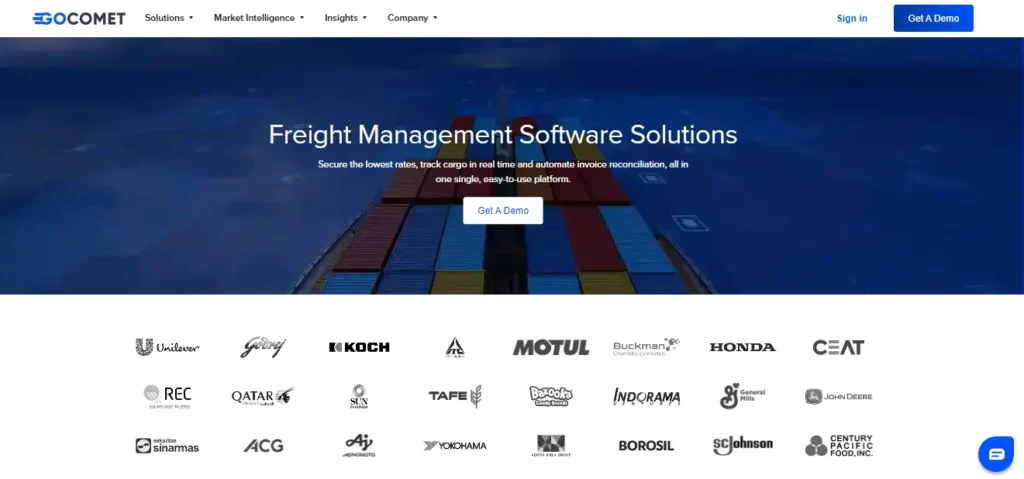
Key Features:
– Automated and compounded negotiation system
– Transparent procurement process
– Real-time vendor performance analytics
– Record-keeping for future reference
Best For Businesses seeking automated freight negotiation with vendor performance analytics.
Coupa
Coupa’s RFQ management software simplifies requesting quotes and consolidates negotiated rates on one dashboard. It provides real-time freight quotes, side-by-side comparisons, and vendor bidding via email.
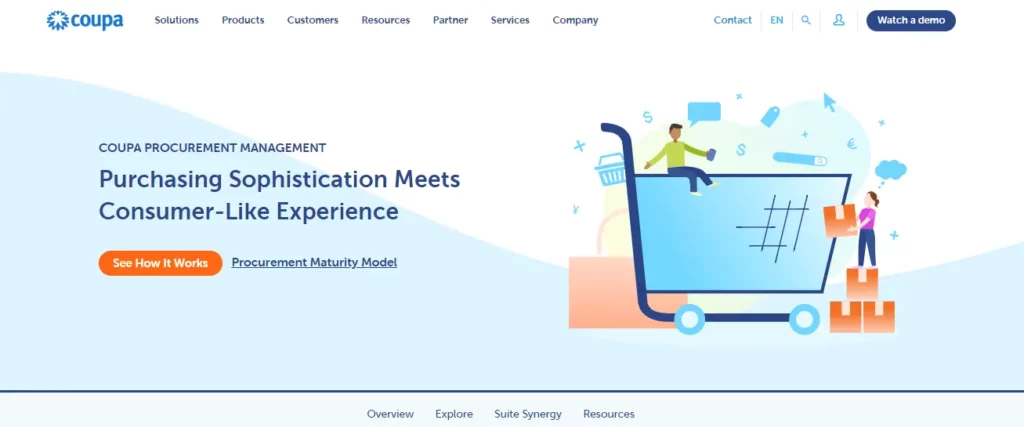
Key Features:
– Real-time freight quotes
– Side-by-side quote comparison
– Vendor bidding via email
– Dashboard for consolidated rates
Best For Businesses in need of real-time freight quotes and simplified RFQ management.
Alpega
Alpega’s Freight Cost Management software digitizes and automates the rate procurement process. It offers a comprehensive overview of total freight costs, contract management, and invoice settlement on a reliable, cloud-based platform.
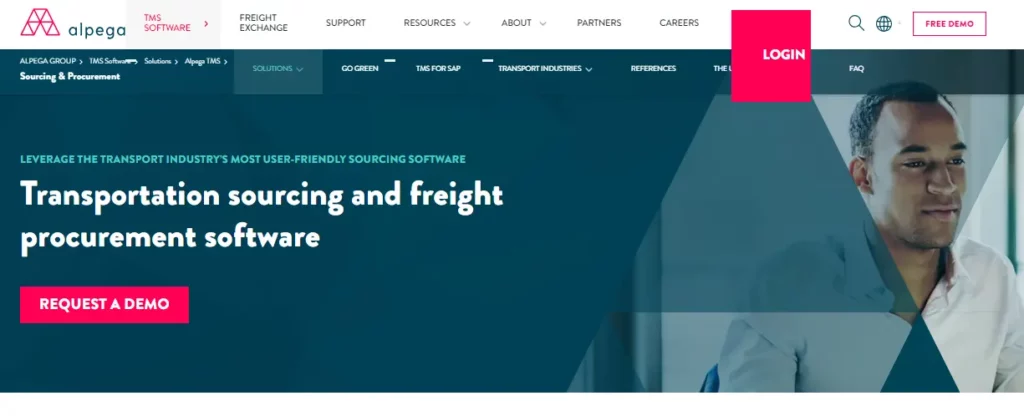
https://www.alpegagroup.com/en/
Key Features:
– Digitized and automated rate procurement
– Comprehensive overview of total freight costs
– Contract management and invoice settlement
– Cloud-based platform for reliability
Best For Businesses seeking comprehensive freight cost management on a cloud-based platform.
Transporeon
Transposons Rate Management module offers centralized data handling and transparency for freight rates. It simplifies the processing of complex pricing plans, surcharges, and alternative shipping options with centralized storage for all freight contracts and documents per carrier and contract.
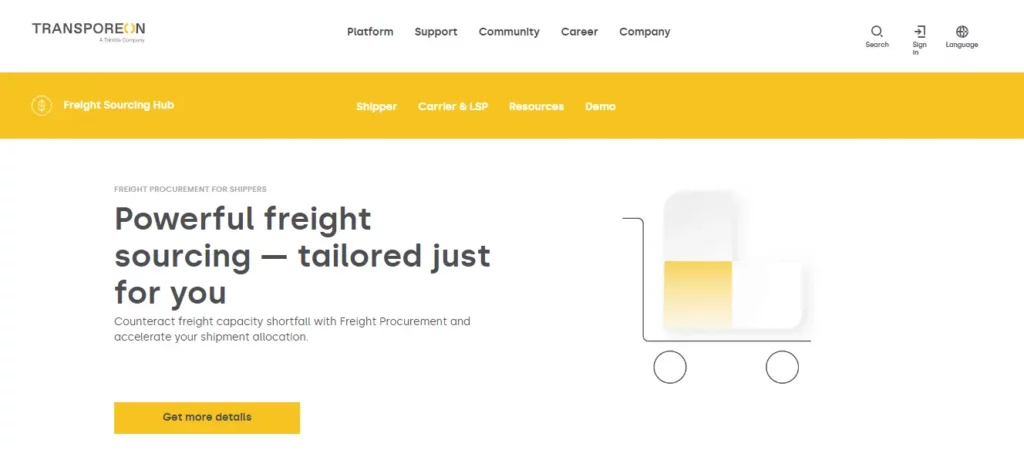
https://www.transporeon.com/en
Key Features:
– Centralized data handling for freight rates
– Simplified processing of complex pricing plans
– Centralized storage for freight contracts and documents
– Transparency in freight rate management
Best For Businesses managing complex freight contracts and pricing plans.
FreightPOP
FreightPOP’s multi-carrier rate shopping module aims to save up to 30% on shipping and freight. It offers a Rate Shopping dashboard for easy comparison of negotiated rates, shipment information autofill, and email quoting directly from the app.
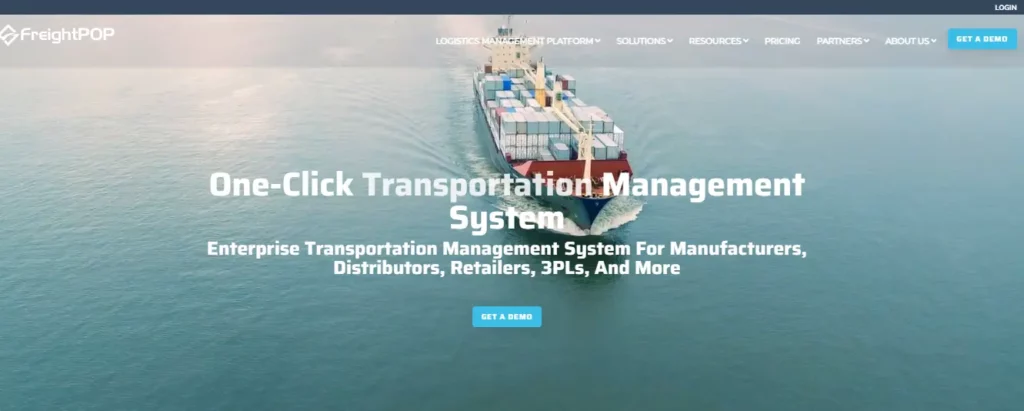
Key Features:
– Multi-carrier rate shopping
– Rate Shopping dashboard for easy comparison
– Shipment information autofill
– Email quoting directly from the app
Best For Businesses looking to save on shipping and freight costs with multi-carrier rate shopping.
Freightos
Freightos offers painless global freight comparison and booking. It provides free freight quotes, instant comparison of shipping quotes from 75+ freight forwarders, and transparent pricing with all-in shipment fees.
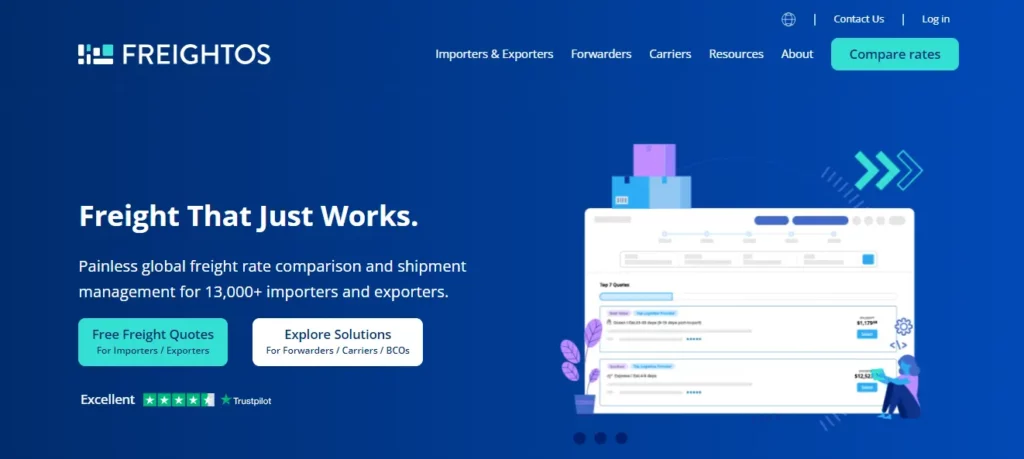
https://www.freightos.com/
Key Features:
– Free freight quotes
– Instant comparison of shipping quotes
– Transparent pricing with all-in shipment fees
– Global freight comparison and booking
Best For Businesses seeking painless global freight comparison and transparent pricing.
Kuebix
Kuebix is a cloud-based TMS that helps shippers find the best shipping rates, book orders, and track shipments. It offers real-time rate shopping, booking and tracking, auditing, and integrations to improve freight procurement processes.
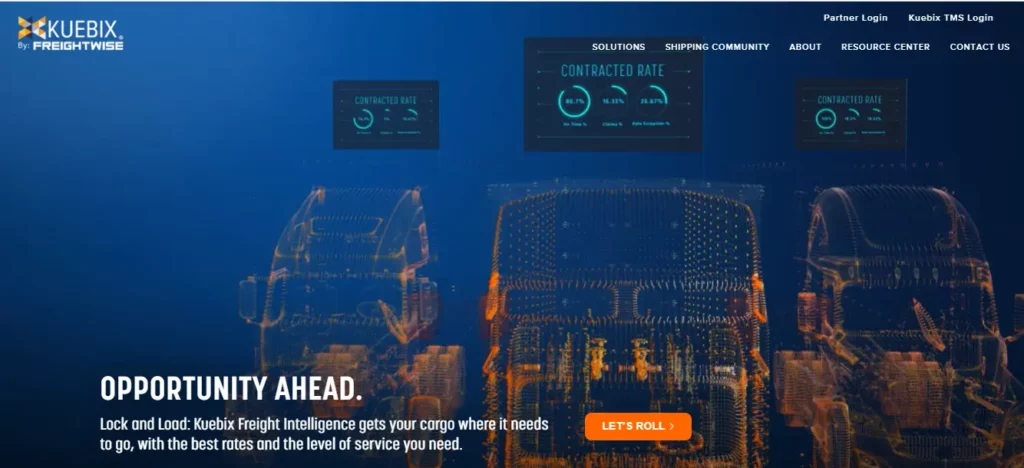
Key Features:
– Real-time rate shopping
– Booking and tracking of shipments
– Auditing and integrations
– Cloud-based platform for accessibility
Best For Shippers seeking real-time rate shopping and cloud-based TMS capabilities.
LogistaaS
LogistaaS is a cloud-based freight procurement software offering automated RFQs, real-time quotes, transparent pricing, and data analytics. It provides increased visibility, improved efficiency, and reduced risk for freight forwarding operations.
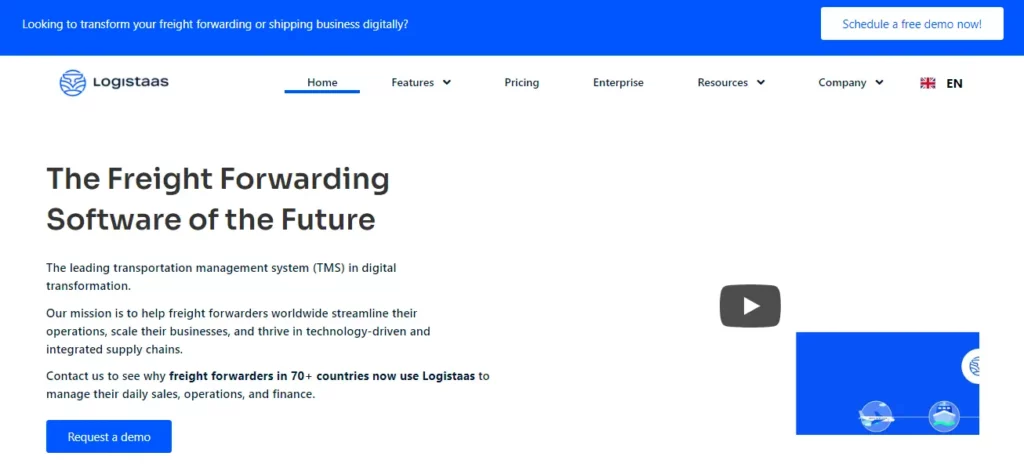
Key Features:
– Automated RFQs
– Real-time quotes
– Transparent pricing
– Data analytics for improved efficiency
Best For Businesses seeking increased visibility and efficiency in freight forwarding operations.
ShipStation
ShipStation offers freight rate shopping, label printing, tracking, inventory management, and integrations to streamline freight shipping processes. It helps businesses save time, improve visibility, and increase efficiency in freight operations.
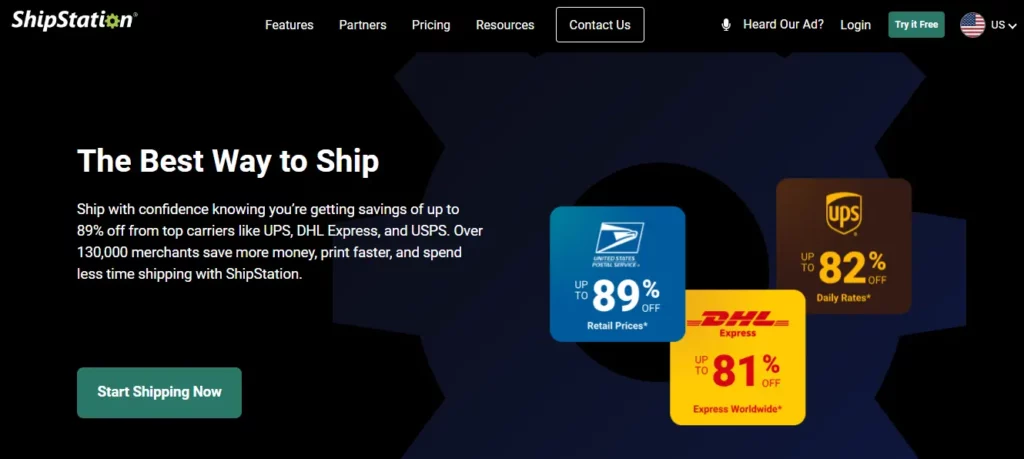
https://www.shipstation.com/
Key Features:
– Freight rate shopping
– Label printing and tracking
– Inventory management
– Integrations with other business applications
Best For Businesses seeking streamlined freight shipping processes and improved efficiency.
Flexport
Flexport is a cloud-based platform that helps businesses manage global freight shipments. It offers features like order management, freight booking, customs clearance, insurance, and reporting, providing real-time visibility and ensuring compliance with regulations.
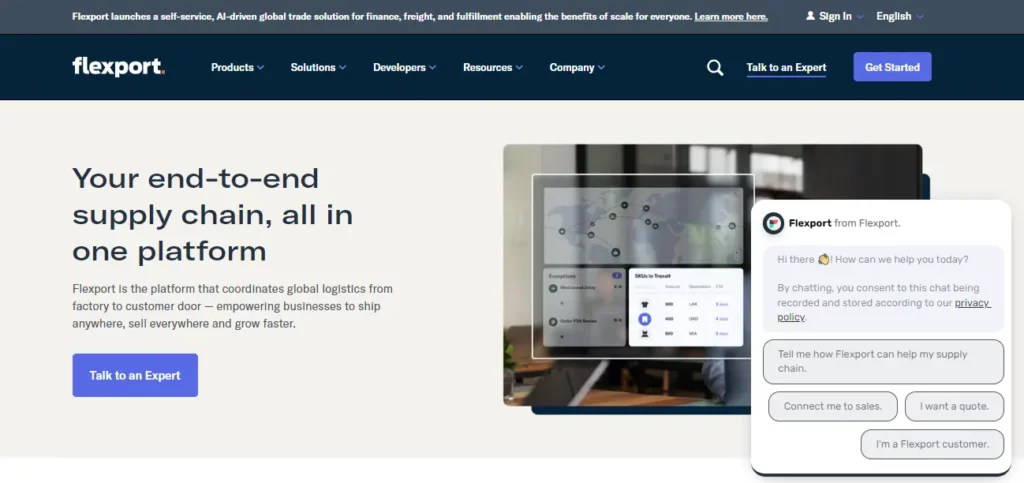
Key Features:
– Global freight shipment management
– Order management and booking
– Customs clearance and insurance
– Real-time visibility and compliance reporting
Best For Businesses managing complex global freight shipments with regulatory compliance needs.
Comparison of Freight Procurement Software Solutions
| Software Name | Key Features | Pricing | Best For |
| GoComet | – Automated negotiation system | Requires a custom quote (publicly undisclosed) | Automated freight negotiation |
| Coupa | – Real-time freight quotes | Requires a custom quote (publicly undisclosed) | Simplified RFQ management |
| Alpega | – Digitized rate procurement | Requires a custom quote (publicly undisclosed) | Comprehensive freight cost management |
| Transporeon | – Centralized data handling for freight rates | Requires a custom quote (publicly undisclosed) | Managing complex freight contracts |
| FreightPOP | – Multi-carrier rate shopping | Requires a custom quote (publicly undisclosed) | Saving on shipping and freight costs |
| Freightos | – Painless global freight comparison | Contract Management Services: $40User Fees: $49 per user/month. | Transparent pricing and global comparison |
| Kuebix | – Real-time rate shopping | Options include a free plan, subscription, and free trial for selection. | Real-time rate shopping and cloud-based TMS |
| LogistaaS | – Automated RFQs | Freight management solution: $55/user/month Customer relationship management: $35/user/month | Increased visibility and efficiency |
| ShipStation | – Freight rate shopping | Pricing tiers: Starter $9/monthBronze $29/monthSilver $49/monthGold $69/monthPlatinum $99/monthEnterprise $159/month. | Streamlined freight shipping processes |
| Flexport | – Global freight shipment management | Requires a custom quote (publicly undisclosed) | Managing complex global freight shipments |
Evaluating the freight procurement software
When selecting freight procurement software for your business, there are several important features to consider. Here are some key features to evaluate:
1. Freight Sourcing and Bidding: Look for software that provides a comprehensive platform for freight sourcing and bidding. It should allow you to efficiently solicit quotes from multiple carriers and compare them based on factors such as price, service level, and transit time.
In recent developments regarding freight procurement software, advancements have focused on enhancing the efficiency and effectiveness of freight sourcing and bidding processes for businesses. Modern platforms now offer comprehensive solutions that streamline the solicitation of quotes from multiple carriers. These advancements facilitate quick and seamless comparisons based on crucial factors such as price, service level, and transit time, optimizing decision-making processes.
2. Carrier Network and Integration: Ensure that the software has a wide network of reliable carriers that you can connect with easily. It should support integration with carrier systems, allowing for streamlined communication, real-time tracking, and . electronic documentation exchange.
In recent advancements regarding freight procurement software, these networks are continually expanding to include new carriers and modes of transportation, ensuring flexibility and adaptability to evolving supply chain needs. Furthermore, integration facilitates electronic documentation exchange, streamlining administrative processes and reducing paperwork.
3. Rate Management: Effective rate management is crucial for freight procurement. The software should enable you to maintain and manage carrier rates, including contract rates, spot rates, and accessorials. It should also support rate negotiation and provide tools to analyze rate performance.
Additionally, innovative rate management functionalities incorporate automation capabilities, streamlining rate updates and reducing manual errors. By automating routine tasks such as rate maintenance and rate updates, businesses can improve operational efficiency and reduce administrative burden.
4. Analytics and Reporting: Look for software that offers robust analytics and reporting capabilities. It should provide actionable insights into your freight spend, vendor participation, carrier performance, lane analysis, and other key metrics. Customizable reports and dashboards are also beneficial.
Recent advancements in freight procurement software include advanced data visualization tools, predictive analytics algorithms, and machine learning capabilities, allowing businesses to uncover hidden patterns, trends, and opportunities within their supply chain data.
Furthermore, modern freight procurement software integrates with other business systems, such as ERP and TMS platforms, to provide seamless data exchange and holistic visibility into end-to-end supply chain processes. By leveraging these advanced analytics and reporting functionalities, businesses can optimize their freight procurement strategies, identify areas for improvement, and drive continuous performance enhancement.
5. Automation and Workflow: The software should automate manual tasks and streamline workflows. This includes features such as easy approval of freight quotes across the internal hierarchy, automated carrier selection based on predefined rules, automated document generation, and workflow notifications that keep stakeholders informed and facilitate proactive management of shipments. Integration with other systems like ERP or TMS can enhance process efficiency.
Recent advancements leverage these advanced automation and workflow optimization capabilities, businesses can streamline their freight procurement processes, reduce costs, and improve overall operational agility.
6. Compliance and Documentation: Freight procurement involves numerous compliance requirements and documentation. Ensure that the software helps you manage and track compliance with regulations, such as customs documentation, hazardous materials handling, and carrier insurance. It should support electronic documentation, storage and retrieval.
Cutting-edge software solutions integrate with government databases and regulatory agencies to facilitate real-time updates and alerts regarding changes in regulations, ensuring businesses stay informed and compliant at all times. By leveraging these advanced compliance and documentation management features, businesses can mitigate risks, streamline operations, and ensure regulatory compliance throughout the freight procurement process.
7. User Experience: A user-friendly interface and intuitive workflow are essential for user adoption and productivity. Evaluate the software’s ease of use, training and support resources, and the availability of mobile or web-based access for remote teams.
The advancements through software solutions enable leveraging user feedback and data analytics to continuously refine and optimize the user experience, address pain points, and enhance usability. By prioritizing user experience, businesses can improve efficiency, reduce training time, and drive greater user satisfaction and adoption of the freight procurement software.
8. Integration and Compatibility: Assess the software’s ability to integrate with other systems, such as your existing ERP, TMS, or WMS. Compatibility with standard file formats (EDI, XML, CSV) and the availability of APIs for data exchange can simplify data sharing and enhance process efficiency.
The latest software solutions prioritize compatibility with a wide range of existing systems, offering flexible integration options tailored to the specific needs and requirements of businesses.
Conclusion
By leveraging freight procurement software, businesses can optimize their freight spend, ensuring that they achieve the best value for money. The software facilitates transparent and collaborative communication between shippers and carriers, enabling them to negotiate contracts, manage freight tenders, and monitor performance effectively. This level of visibility and control minimizes risks, improves compliance, and fosters stronger partnerships within the logistics ecosystem.
To know more about how to best negotiate the lowest prices for your shipment, and identify the right freight procurement software for your business, reach out to us today!
